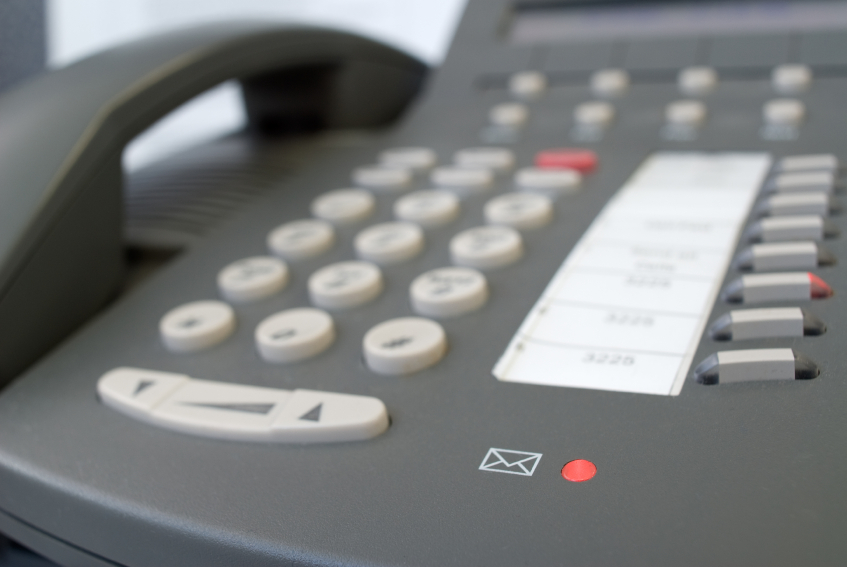In today’s business world, it is almost a rarity when people answer their phone. Mostly, we reach people’s voicemails. This is extremely frustrating for those of us who need information or want answers. What compounds the issue is that when we leave a voicemail, people seem to ignore it.
The original design for voice mail was to deliver brief, concise messages. Thus, voice mail should not be another vehicle for having a conversation. The longer the voice mail, the less likely it is to get results. Two-minute voicemails are doomed to failure.
A recent Gallop poll showed that the typical manager sends and receives 178 messages a day. People are also listening to voicemails on the fly– at airports, over lunch, in their car, on the way to a meeting or on breaks with a client. The more you remember to keep your message short, (preferable under 45 seconds), the more likely you are to get results. If your voicemail is longer than what can be written on a post-it note, it is probably too long. Any information that needs to be retained by the recipient should be sent in an e-mail, memo or letter. Before you pick up the phone, ask yourself, is this the best vehicle for conveying this message?
When you do place a call, be prepared that you will probably get voice mail. Have your act together. Make sure your message answers the questions people typically have:
- Who is this person? What company does this person represent?
- What’s the purpose of this call?
- What does the caller need from me?
- Should I do it or ignore it? What’s in it for me?
To make it easy for your listener, state your name, your company name and your telephone number at the beginning and at the end of the call. The last thing people want to do is replay an entire message to get the necessary information.
Then state the purpose for the call. For example, “The purpose of this call is to advise you that I am not able to ship your order with this credit card number.” “The purpose of the call is to invite you to our September user’s conference for preferred customers.” It can even be a simple statement like, “Jack, I need to reschedule our meeting.”
After stating your purpose, tell your listener what you want him or her to do. If you want the person to call you back, tell him but tell him when you are available. This will avoid phone tag. Be very direct about what you need from your listener.
Obviously, if people are going to take the initiative to call you or send you data or do whatever you have requested, they need to see the benefit. Attaching a benefit statement to an action statement might sound something like this, “Mary, if you call me back by 3, I can guarantee that you will have the merchandise shipped today, and it will be in your store in two days.” “Jerry, in order for us to install on Monday, I need you to fax me a signed purchase order by the end of business today. My fax is 555-1212.
Whenever you leave a voicemail, people make inferences about you and the company you represent. Speak slowly. Use a two-second pause between each statement. It will help your listener to digest your message. Also, if you are upset, in a hurry or in a questionable environment, do not pick up the phone. Wait. The last thing you want is for the tone of your voice to be inappropriate.
With practice, you can become a pro at leaving voicemails that get results. Start by sending yourself voicemail messages. The time and effort you take to perfect this skill will pay off in the long run.
Additional Articles about ‘Voice’ from Impact Communications
Want People to Return Your Voicemail? Here’s How!
Tips for a Killer First Impression on the Phone
First Impressions are Lasting, Particularly on the Phone
Your Tone of Voice is a Door Opener
Telephone Communication Skills Training from Impact Communications
Ex.C.E.E.D. (Exceeding Customer Expectations Every Day)
Effective Telephone Skills for Inside Sales Representatives
Continue the Conversation and Communication
Have something to add to this article? Comment below in the “Comment” box or directly on Twitter.
Keep this article with you, download a PDF version of this article.
Impact Communications, Inc. consults with individuals and businesses to improve their presentation and telephone communication skills. It is not what you know but how you communicate it that makes a difference. When you have to have impact, phone (847) 438-4480 or visit our website, www.ImpactCommunicationsInc.com.

Impact Communications, Inc. was established in 1998. It is a national presentation communication skills and telephone communication skills training company that excels at defining and developing the core elements of effective business communication. With presentation communication skills training, telephone communications skills training, every encounter can be an efficient and lucid transmission of information.






Recent Post Comments